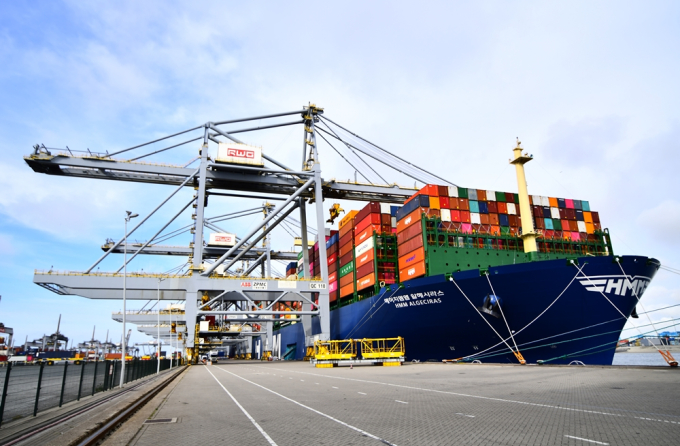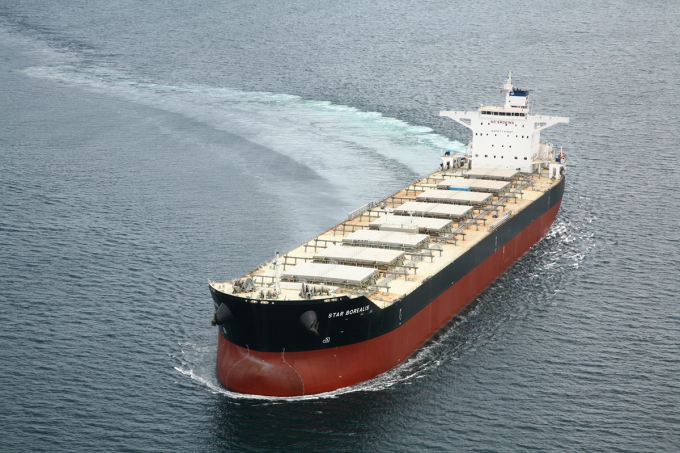Logistics challenges
HMM, SM Line to deploy container ships to support Korean exporters
By Jan 22, 2021 (Gmt+09:00)
1
Min read
Most Read

South KoreaŌĆÖs leading shipping companies have decided to deploy at least five container carriers on major sea routes to provide support for local exporters struggling to find ships amid soaring freight rates.
HMM Co., the country's largest container line, will operate a ship with a capacity of 4,600 twenty-foot equivalent units (TEU) on the American route on Jan. 23, the Ministry of Oceans and Fisheries said on Friday.
The company will deploy a 5,000-TEU carrier on the Korea-Europe route on Jan. 31.
SM Line Corp., a merchant ship operator, will dispatch two container ships with a capacity of 3,400 TEUs and 6,500 TEUs each on the Korea-US route in February.
Namsung Shipping Co., a mid-sized local shipper, will deploy a 700-TEU vessel on the Southeast Asian route on Jan. 30.
The oceans ministry said it will make efforts to put into operation eight more ships with a capacity of 16,000 TEUs as soon as they are built during the first half of the year.
To support small- and medium-sized exporting companies, the government will request local shippers to deploy 350-TEU ships only for smaller firms on the American route every week by the end of February.
The deployment, made by the government request, comes as the countryŌĆÖs exporters and importers, particularly smaller ones, are paying sharply higher freight rates and struggling to find container ships and bulk carriers for their goods.

The global shortage of container vessels was partly triggered by China as container ship owners rushed to the Asian country to meet rising demand after Chinese exporters emerged from the COVID-19 impact earlier than their global peers.
With the resumption of business activities, global shipping costs have soared, sending the Shanghai Containerized Freight Index (SCFI) to an all-time high of 2,885 this week. The Baltic Dry Index (BDI) also rose to 1,740 as of Jan. 18, up 27% from the start of the year.
Officials from the government, local shippers and exporters, emerging from a government-organized emergency meeting on Friday, said they expect the uptrend in freight rates to slow after the Chinese Lunar New Year holidays in the second week of February.
Write to Man-Su Choe at bebop@hankyung.com
In-Soo Nam edited this article.
More to Read
-
 Logistics challengesSurging freight rates, bulker shortages squeeze Korean importers
Logistics challengesSurging freight rates, bulker shortages squeeze Korean importersJan 21, 2021 (Gmt+09:00)
3 Min read -
 Shipbuilding ordersKorean shipbuilders kick off 2021 with $1 bn container ship, LNG carrier orders
Shipbuilding ordersKorean shipbuilders kick off 2021 with $1 bn container ship, LNG carrier ordersJan 05, 2021 (Gmt+09:00)
2 Min read -
 Logistics challengesS. Korea's shipping firms grapple with container shortages
Logistics challengesS. Korea's shipping firms grapple with container shortagesNov 12, 2020 (Gmt+09:00)
2 Min read -
 Logistics challengesKorean firms face triple whammy of soaring KRW, freight rates, Biden
Logistics challengesKorean firms face triple whammy of soaring KRW, freight rates, BidenNov 08, 2020 (Gmt+09:00)
6 Min read
Comment 0
LOG IN




